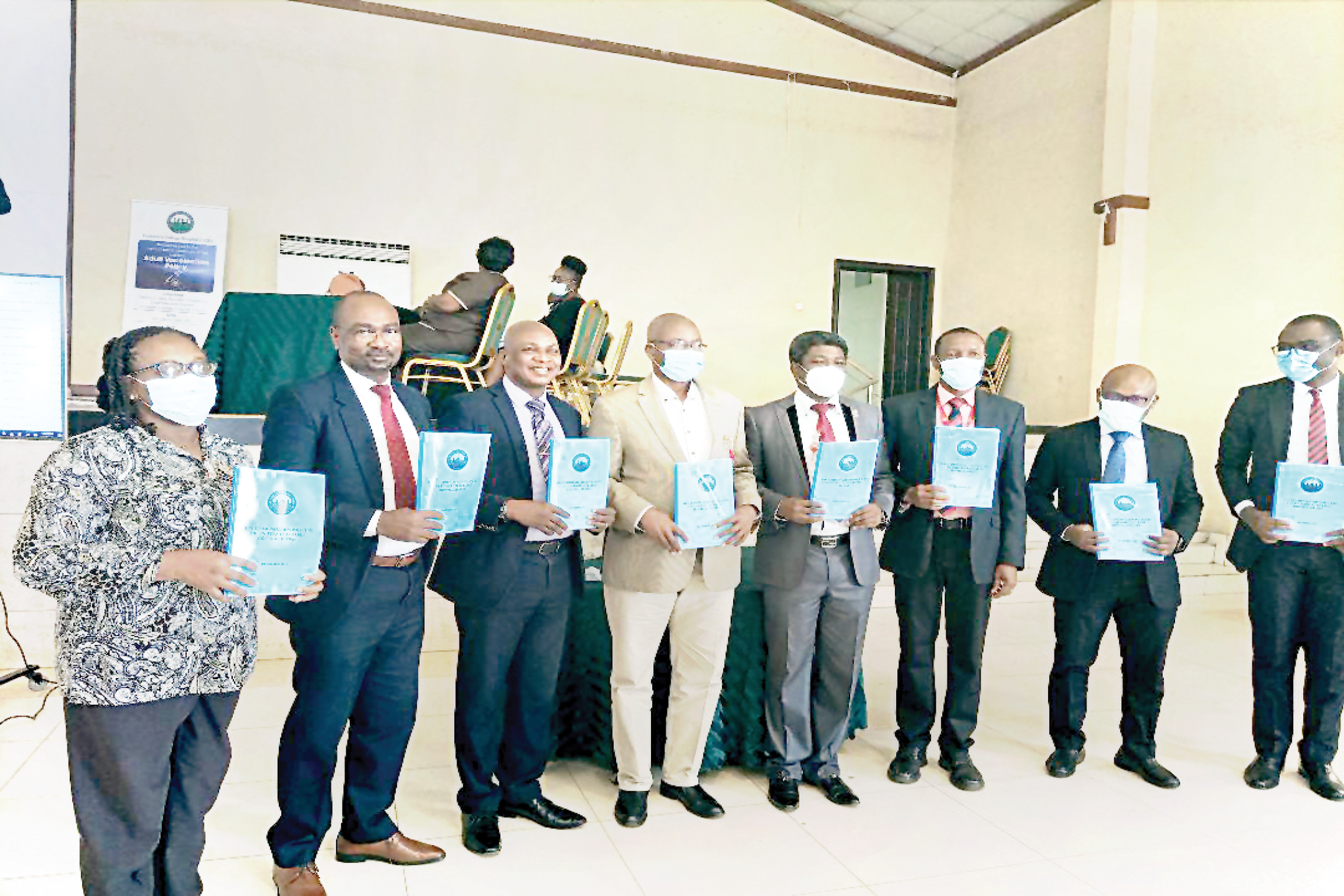You’re never too old to get vaccinated! In this report by SADE OGUNTOLA, experts at the launch of West Africa’s policy statement on adult immunisation say getting vaccinated is a lifelong, life-protecting step that adults need to strongly imbibe in Nigeria.
IMMUNISATIONS are not just for kids. At any age, vaccination provides the longest-lasting, most effective protection against disease. Immunisations prevent the spread of serious diseases that could result in poor health, missed work, medical bills, and not being able to care for the family.
The World Health Organisation (WHO) says vaccination saves an estimated 2 to 3 million lives each year globally. Despite this fact, while many countries have robust childhood vaccination systems, less attention is been paid to adult immunisation, even in developed countries with strong public health infrastructure.
For some time, WHO has been promoting ‘life-course vaccination’, allowing for an extension of the vaccination vision and taking adults as an integral part of national vaccination programmes and calendars.
As part of efforts to contribute to ensuring that adult vaccinations get more attention than what currently obtains globally, the University College Hospital (UCH), Ibadan, launched its policy statement on adult immunisation.
The proportion of the adult population has increased globally and the current projections indicate that by 2050, the group of 60 years and older will represent 21.1%.
Longevity brings with it a weakening of the immune response to vaccines, a process known as immunosenescence, representing an increasing challenge to adequately protect this age group.
UCH’s Chief Medical Director, Professor Abiodun Otegbayo, at the launch said: “Adults can be carriers of infectious diseases to the susceptible, and immunity from childhood immunisation wanes with age, leading to disease outbreaks such as pertussis (whooping cough) in the United States.”
To preserve protection, tetanus and diphtheria immunisations, for example, must be renewed with a new vaccine and booster shots every ten years.
He added: “Some vaccine-preventable diseases can become more severe with increasing age. Some adults were not vaccinated as children. Last, with increasing globalisation, more and more people travel across borders and are susceptible to infectious diseases that are not endemic in their home country.”
Chairman, Dr Olufemi Olowookere, a geriatric expert, said all adults have immunisation needs and these needs are determined based on their health conditions, age, lifestyle and occupation.
According to him, adult diseases with available vaccines include flu, pneumonia, whooping cough, diphtheria, tetanus, meningitis, hepatitis, shingles and COVID-19 and the effectiveness of these vaccines varies with the vaccine type.
“Shingles vaccine has been found to be 56 per cent against shingles and 66 per cent against post-herpetic neuralgia. The pneumococcal vaccine has about 45 per cent effectiveness against vaccine-type pneumococcal pneumonia.
“Hepatitis B vaccine is about 90 per cent effective after completing a 3-dose series, though lower in persons with diabetes. Also, influenza vaccination reduces the risk of influenza illness in pregnant women,” the geriatric expert said.
However, Dr Olowookere stated that it is important that providers of health care strongly recommend vaccinations to adults at each clinical encounter as well as educate and counsel them on the recommended vaccines to improve on adult vaccination in the country.
On her part, Professor Regina Oladokun, an infectious disease expert, stated that in adults, there are infectious diseases that also need to be prevented, especially in the elderly and other high-risk groups, with vaccination like hepatitis, yellow fever, tetanus, whooping cough, pertussis and herpes zoster.
She said: “The high-risk groups include individuals with chronic medical conditions such as diabetes and heart conditions as well as health workers. Health workers are always encountering people that have an infection, so they must avail themselves of vaccines.”
She added that surveillance of infectious diseases is important for a good vaccination programme for adults as well as a nationwide adult vaccination plan.
Oladokun, a paediatrician, warned, “it must not interfere with the routine childhood immunisation programme, otherwise, we will be in trouble. We have not below 50 per cent with childhood immunisation.”
Mr Obinna Chukwudebe, Sanofi’s immunisation policy manager, stated that Sanofi strongly believes that a time will come that nobody will suffer or die from vaccine-preventable infections and thus its collaboration with experts to develop the UCH’s adult immunisation policy document, the first in West Africa.
Mr Chukwudebe stated that vaccination reduces disease burdens, widespread antibiotic use and the emergence of resistance to antibiotics as well as cut the cost of medical expense and treatment, thereby saving money for other developmental projects.
According to him, “vaccines will prevent 24 million people in 41 countries falling into the poverty group between 2016 and 2030. For every $1 spent on childhood immunisation in Africa, it brings a return of $44. So, immunisation builds healthier children, healthier communities and a healthier economy.”
Interestingly, Dr Abiodun Adeoye, a cardiologist, said the likelihood of stroke in adults with heart disease and diabetes that take the flu vaccination is reduced.
According to him, “it has been shown that flu vaccination has an anti-inflammatory effect and maintains the plaque that we have along the blood vessels. So, it will not allow the plaques to break to cause a heart attack or stroke.
“It is amazing that the number of patients with heart problems are still alive today because of adult vaccination in an ongoing study at UCH, Ibadan. The prognosis of heart failure is likened to that of cancer. Within 5 years, many are dead. Flu (influenza) vaccination reduces the risk of having a heart attack and stroke.”
Individuals with heart disease are more likely to develop complications from the flu. Complications from the flu include pneumonia, bronchitis, lung failure, heart attack and even death. Having the flu can also make heart failure, diabetes, asthma or other preexisting conditions worse.
Researchers, in a recent report, revealed that people who have the seasonal flu jab are 24% less likely to suffer a stroke. It was based on the results of a study of almost 50,000 people who had suffered a stroke or transient ischaemic attack (TIA or a so-called “mini” stroke) over an eight-year period.
The reduction in risk seemed to be greatest within the first three months of vaccination but remained for up to 12 months. However, the effect lasted only if the vaccine was given early in the flu season (September to mid-November); giving the vaccine late in the flu season (mid-November to February) was not associated with significantly reduced risk.
Previous research studies have suggested that respiratory infections such as the flu may be associated with a stroke. They cite a number of studies that have found there is an increased likelihood of respiratory symptoms in the weeks prior to having a stroke. However, other observational studies failed to find any significant link.
Executive Secretary, Oyo State Primary Health Care Board, Dr Babatunde Olatunji, stated that the newly-launched policy statement on adult immunisation is coming at a time that many adults in the community are expressing concern over vaccine availability for older people.
He, however, said for mass vaccination of adults, the state government can provide a data background for increased use of the UCH’s newly-launched policy statement on adult immunisation and the possibilities on replication across the country.
YOU SHOULD NOT MISS THESE HEADLINES FROM NIGERIAN TRIBUNE
We Have Not Had Water Supply In Months ― Abeokuta Residents
In spite of the huge investment in the water sector by the government and international organisations, water scarcity has grown to become a perennial nightmare for residents of Abeokuta, the Ogun State capital. This report x-rays the lives and experiences of residents in getting clean, potable and affordable water amidst the surge of COVID-19 cases in the state.
WATCH TOP VIDEOS FROM NIGERIAN TRIBUNE TV
- Let’s Talk About SELF-AWARENESS
- Is Your Confidence Mistaken for Pride? Let’s talk about it
- Is Etiquette About Perfection…Or Just Not Being Rude?
- Top Psychologist Reveal 3 Signs You’re Struggling With Imposter Syndrome
- Do You Pick Up Work-Related Calls at Midnight or Never? Let’s Talk About Boundaries






